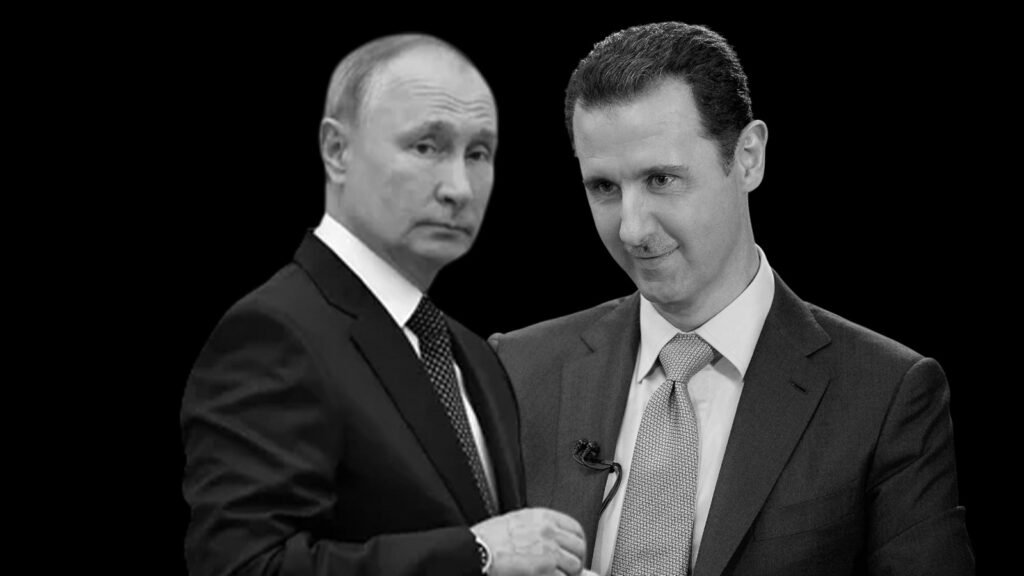The political landscape of Syria took a dramatic turn as reports emerged suggesting ousted President Bashar al-Assad has sought refuge in Moscow. Sources close to Russian authorities claim Assad arrived in Russia earlier this week, accompanied by close family members and a small contingent of loyal advisors. The move follows mounting speculation about his safety and position after a rebel advance in Syria’s Hama province significantly weakened the regime’s hold.
Assad’s reported departure marks a symbolic and strategic turning point in the Syrian civil war, now entering its 14th year. Analysts believe this development underscores the intensifying pressure on Assad’s regime, particularly after months of territorial losses to opposition forces and increasing discontent among his own military ranks.
Asylum in Moscow
Russian officials have not yet confirmed Assad’s presence, but sources within the Kremlin suggest Moscow granted asylum to the embattled leader. The decision aligns with Russia’s long-standing support for the Assad regime, having intervened militarily in Syria since 2015. Assad’s presence in Moscow could complicate diplomatic efforts to resolve the conflict, particularly as Russia maintains a pivotal role in brokering ceasefires and peace talks.
Meanwhile, opposition groups in Syria celebrated the reports, viewing Assad’s departure as a victory for their cause. A prominent rebel leader stated, “Assad fleeing Syria signals the beginning of the end for his oppressive rule. The Syrian people deserve a future free from his tyranny.”
Israeli Ground Operations in Syria
In the wake of Assad’s reported flight, Israel has launched a series of targeted military operations inside Syrian territory, escalating regional tensions. Reports from Syrian sources and international observers indicate that Israeli ground forces have crossed into southern Syria, ostensibly targeting Iranian military infrastructure and Hezbollah positions.
The Israeli Defense Forces (IDF) justified the incursion as a necessary step to neutralize threats posed by Iranian-backed militias exploiting the power vacuum left by Assad’s ouster. An IDF spokesperson stated, “Our operations are aimed at ensuring Israel’s security and preventing hostile forces from establishing footholds near our borders.”
The incursions have triggered alarm among regional players, with Lebanon and Jordan expressing concern over the potential spillover of conflict into their territories. Russia, a key player in Syria, condemned the Israeli actions, warning that further interventions could destabilize the fragile situation and lead to broader conflict.
Intensifying Conflict and Humanitarian Crisis
On the ground, the Syrian civil war shows no signs of abating. Rebel forces continue to gain momentum, particularly in northern regions. In Hama province, rockets fired by opposition groups have targeted regime strongholds, marking a significant shift in the balance of power. The escalation comes amid a humanitarian crisis, with thousands displaced by renewed fighting.
Russian airstrikes have also intensified in response to rebel advances, raising concerns over civilian casualties. The United Nations reported that over 200,000 Syrians have fled their homes in recent weeks, seeking refuge in neighboring countries or already overcrowded camps.
International Reactions
Assad’s reported asylum and the subsequent Israeli incursions have drawn sharp criticism from Western governments. U.S. Secretary of State Antony Blinken called on Russia to clarify Assad’s status and condemned Israel’s ground operations, urging all parties to de-escalate the situation. “The Syrian people have endured enough suffering; this is not the time for further military aggression,” Blinken said during a press briefing.
The European Union echoed these sentiments, warning that granting Assad asylum and foreign military interventions undermines international efforts to achieve a peaceful resolution to the conflict.
Israel, however, defended its actions, with Prime Minister Benjamin Netanyahu emphasizing the need to counter threats along its borders. “Israel will not tolerate the presence of hostile forces in proximity to its territory,” Netanyahu asserted.
Uncertain Future
Assad’s whereabouts remain unconfirmed, fueling rumors about the next steps in his political and personal journey. Some speculate he may seek a political role in exile, leveraging his close ties with Moscow to remain influential in Syrian affairs. Others believe his departure signals the final chapter of his presidency.
As the Syrian civil war continues to evolve, Assad’s reported flight and the subsequent Israeli military actions underscore the unpredictable nature of the conflict and its broader implications for the Middle East. The international community now faces renewed urgency to address the humanitarian and political crises engulfing the region while navigating the complex web of international interests at play.


